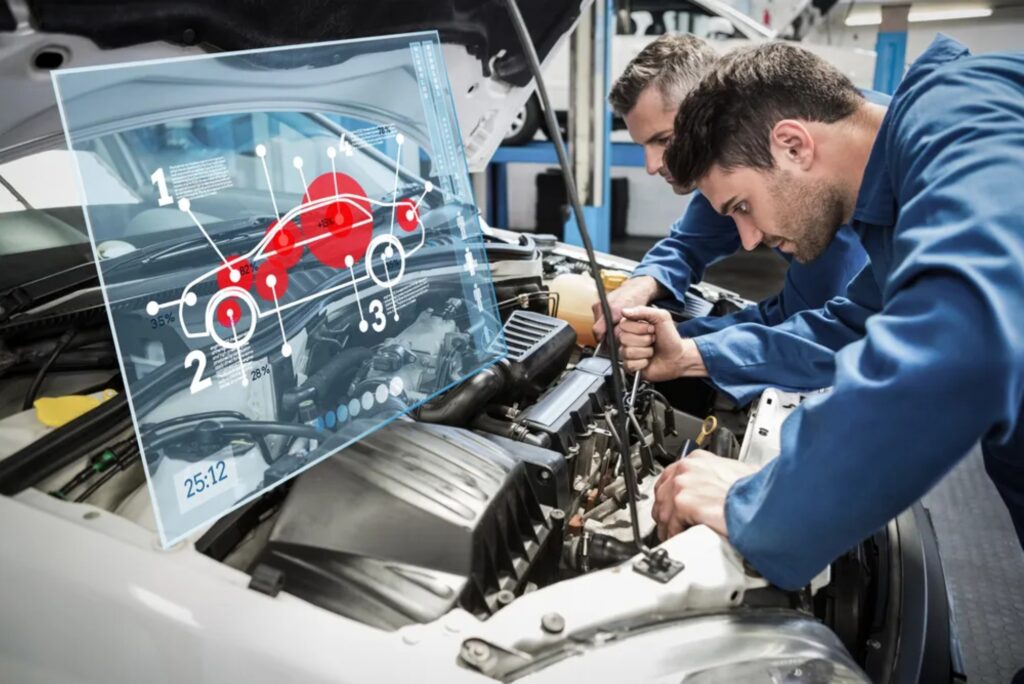Is Automobile Engineering and Mechanical Engineering Same?
When considering a career in engineering, prospective students often encounter confusion between automobile engineering and mechanical engineering. While both fields share fundamental principles, they diverge significantly in focus and application. Understanding these disparities is crucial for making informed career choices. Let’s delve into the distinctions between automobile engineering and mechanical engineering.

What is Automobile Engineering?
Automobile engineering, also known as automotive engineering, is a specialized branch of engineering that focuses on the design, development, manufacturing, and maintenance of vehicles. Is Automobile Engineering and Mechanical Engineering Same Professionals in this field are responsible for creating safe, efficient, and innovative automotive solutions. Automobile engineers deal with various aspects of vehicle engineering, including:
- Vehicle Design: Designing components such as chassis, body, engine, and transmission systems to meet performance and safety standards.
- Vehicle Dynamics: Studying the movement and behavior of vehicles to enhance stability, handling, and overall performance.
- Automotive Electronics: Integrating electronic systems for functionalities like navigation, entertainment, and safety features.
- Emission Control: Developing technologies to reduce vehicle emissions and comply with environmental regulations.
- Powertrain Engineering: Optimizing engines, transmissions, and drivetrains for better fuel efficiency and performance.
What is Mechanical Engineering?
Mechanical engineering is a broad discipline that encompasses the design, analysis, and manufacturing of mechanical systems. It deals with the principles of physics, mathematics, and material science to create tangible products and solutions. Mechanical engineers work across various industries, contributing to the development of machinery, equipment, and systems. Key areas of focus in mechanical engineering include:
- Machine Design: Designing and analyzing mechanical components and systems for efficiency, reliability, and safety.
- Thermodynamics and Fluid Mechanics: Studying the behavior of fluids and heat transfer phenomena to optimize energy systems and thermal processes.
- Materials Science: Understanding the properties and behavior of materials to select appropriate materials for engineering applications.
- Manufacturing Processes: Developing and optimizing manufacturing processes such as machining, casting, and additive manufacturing.
- Robotics and Automation: Designing and programming robotic systems for tasks ranging from industrial automation to medical surgery.
Differences Between Automobile Engineering and Mechanical Engineering
While automobile engineering and mechanical engineering share some common foundational knowledge, they differ significantly in their scope, focus, and career paths. Here are the key distinctions:
Focus and Application
- Automobile Engineering: Primarily focuses on the automotive industry, with specialized knowledge in vehicle design, dynamics, and electronics.
- Mechanical Engineering: Has a broader focus, encompassing various industries such as aerospace, energy, manufacturing, and robotics, with a focus on mechanical systems and processes.
Career Opportunities
- Automobile Engineering: Offers career opportunities in automotive companies, vehicle manufacturing, design consultancy firms, and research organizations.
- Mechanical Engineering: Provides diverse career paths in industries such as aerospace, energy, manufacturing, robotics, biomedical engineering, and more.
Specialized Knowledge
- Automobile Engineering: Requires specialized knowledge in automotive systems, vehicle dynamics, powertrains, and emissions control.
- Mechanical Engineering: Covers a broader range of topics, including machine design, thermodynamics, fluid mechanics, materials science, and manufacturing processes.
Interdisciplinary Collaboration
- Automobile Engineering: Involves collaboration with professionals from various disciplines, including electrical engineering, computer science, and materials engineering, to develop integrated automotive solutions.
- Mechanical Engineering: Collaborates with professionals from diverse fields to solve complex engineering problems across different industries.

In conclusion, while automobile engineering and mechanical engineering share some commonalities, they are distinct fields with unique focuses and career opportunities. Individuals interested in automotive design, vehicle dynamics, and automotive electronics may find automobile engineering more suitable, whereas those with broader interests in mechanical systems, thermodynamics, and manufacturing processes may prefer mechanical engineering. Understanding these differences is essential for aspiring engineers to make informed decisions about their career paths.
Mubarak Auto Spare Parts
Mubarak Auto Spare Parts is a renowned supplier of high-quality auto components, serving customers with reliable solutions for their automotive needs. With a comprehensive range of spare parts and accessories, Mubarak Auto Spare Parts ensures vehicle owners have access to genuine products to maintain and enhance the performance of their vehicles.
Chandan Automobile Patna
Chandan Automobile Patna is a leading dealership in the vibrant city of Patna, offering a wide selection of vehicles from various manufacturers. With a commitment to customer satisfaction and quality service, Chandan Automobile Patna strives to provide a seamless car-buying experience, catering to the diverse needs and preferences of its clientele.







